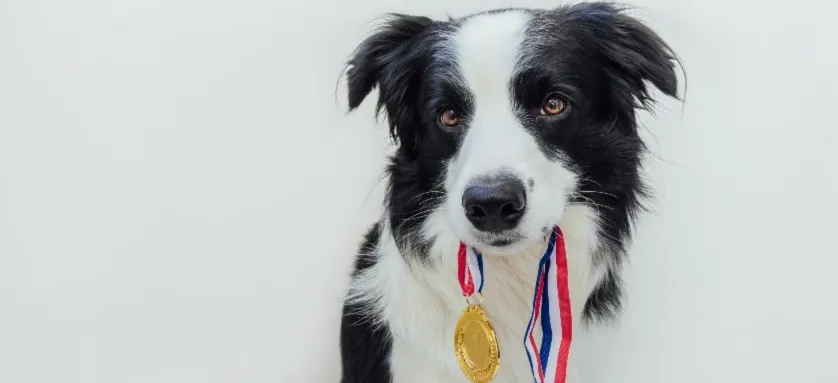The Veterinary Evidence Student Awards 2025 are open.
Are you an undergraduate student who can add to the veterinary evidence base?
Would you like to be published in a peer-reviewed veterinary journal before you graduate? Do you also fancy a chance at winning one of three cash prizes?
Then the Veterinary Evidence Student Awards are just for you!
“I'm absolutely thrilled to have won the competition and have really enjoyed the opportunity to further my scientific writing and evidence-based veterinary medicine skills. I would definitely recommend the experience to anybody interested in entering!”
The competition
Enhance your academic and research skills by writing a Knowledge Summary and submitting it to Veterinary Evidence, the open access, peer-reviewed journal of RCVS Knowledge, the charity partner of the Royal College of Veterinary Surgeons.
All Knowledge Summary submissions will follow the journal's standard editorial process, with the modification that all papers will be judged by the journal editors and reviewers using a grading criteria rubric (see ‘Related Documents’ for the full scoring system). The three top-scoring papers will be awarded the 1st, 2nd, and 3rd prizes:
1st place: £200
2nd place: £100
3rd place: £50
To win one of the prizes, a submitted paper must be considered by our judges to be at a ‘publishable standard’. All submissions will be considered for publication, so even if you don’t submit one of the winning entries you still stand a chance of having your paper and name published in Veterinary Evidence.
- At the time of manuscript submission, authors need to be undergraduate students studying for a degree or equivalent vocational qualification in veterinary medicine or related subjects (including, but not limited to, veterinary nursing, veterinary physiotherapy, veterinary biosciences).
- Competition entrants will not be able to receive our Library services that are normally offered to Knowledge Summary authors, as the Library team grade the search strategy.
- Multiple authors are allowed, but they must all be undergraduate students. Any cash prize will be divided equally between them.
- RCVS Knowledge will publicise details of the awards and the names of awards winners on our websites and in other relevant publications.
- The Veterinary Evidence student awards is an international competition open to all undergraduate students.
How to enter:
- Contact us and get your proposed PICO question approved.
- Write up your Knowledge Summary on our most recentdownloadable templateas this will differ to your course template.
- Ensure you begin the title of your paper with ‘Veterinary Evidence Student Awards’.
- Login and submit your Knowledge Summary to Veterinary Evidence.
The deadline for submissions is 10th January 2025.
If you have any queries about the entry process please contact a member of the Veterinary Evidence team.
How to write a Knowledge Summary
Knowledge Summaries are like Critically Appraised Topics; they answer a specific and focused clinical question by looking at the best available evidence.
Read our bite-size guide, 6 steps to writing a Knowledge Summary, for an overview of the Knowledge Summary writing process. This guide covers the main steps and provides links to more in-depth resources.
For further detailed information and resources on how to write a Knowledge Summary, please read our guidelines for authors.
Check out the previous winners' Knowledge Summaries below, along with furtherpublished Knowledge Summariesin Veterinary Evidence, for examples of how yours should look (or just for some inspiration).
Once completed, submit your Knowledge Summary to Veterinary Evidence.
Listen to our podcast with the winners of the 2023 Student Awards here.
Listen to our podcast with the winners of the 2022 Student Awards here.
Listen to our podcast with the winners of the 2021 Student Awards here.
Read our Q&A with the winners of the 2020 Student Awards here.
2024 Veterinary EvidenceStudent Awards winners
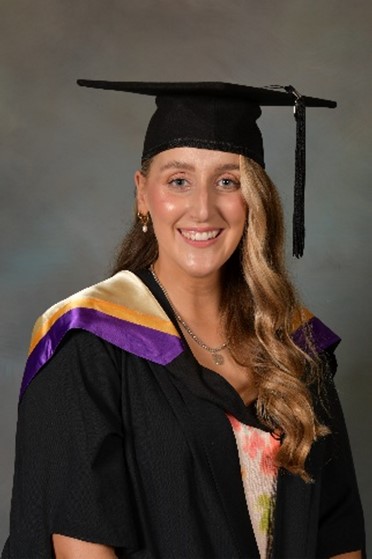
First place went to Amelia Cannadine, Veterinary Medicine student from the University of Sydney for her Knowledge Summary: Nonsteroidal anti-inflammatory drug administration to periparturient cows to reduce postpartum pain-related behaviours
On finding out it was a winning Knowledge Summary, Amelia said “I entered the competition to contribute to the veterinary evidence base focused on improving the welfare of livestock. It is a topic gaining more and more interest in the veterinary industry and there is a lot of room for growth. I feel this Knowledge Summary will allow clinicians and producers to improve the welfare of their breeding cows.
“I found the process of publishing through Veterinary Evidence very user friendly. Their research summary template provides key headings to help writers to include the most crucial evidence related to their specific topic, in turn creating an interesting and concise Knowledge Summary.”
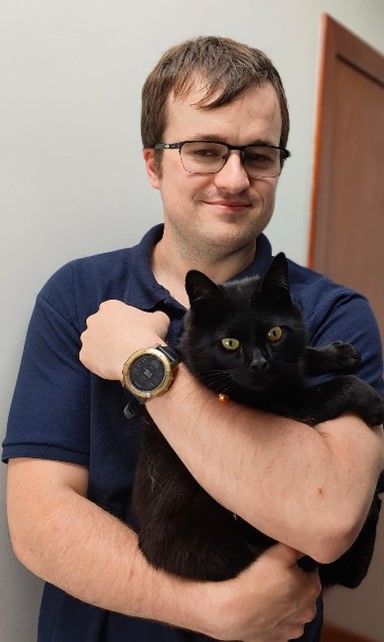
Second place went Oliver Wilkinson, Veterinary Medicine student from the University of Bristol for his Knowledge Summary: The therapeutic effectiveness of oral cannabidiol in addition to current treatment in cats with osteoarthritis
On finding out it was a winning Knowledge Summary, Oliver said, “I had already done a lot of the groundwork as part of coursework and felt it was worthwhile doing the remainder to get it published. It was definitely a worthwhile experience to get better at reviewing papers and learning how to better apply database searching parameters across different databases, the bit I found most interesting was linking the research to similar research in other species to be able to evaluate where the knowledge gaps were in comparison.”
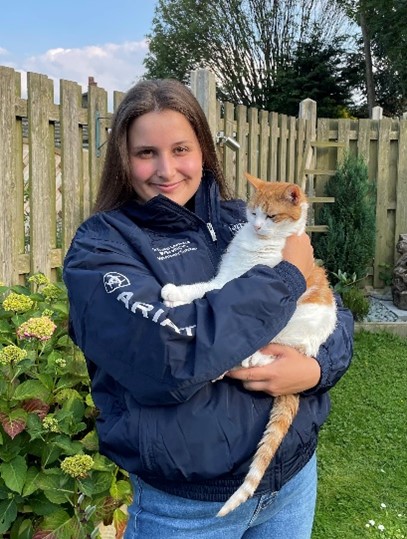
Third place went to Isobel Lawrence, Veterinary Medicine student from the University of Liverpool for her Knowledge Summary: Methadone or buprenorphine: which is the better analgesic for feline ovariohysterectomy?
On finding out it was a winning Knowledge Summary, Isobel said, “The process of publishing a knowledge summary has been really rewarding and the guidelines and support provided made the process straightforward and enjoyable. I now feel more confident about my ability to critically appraise evidence as I head into practice and would recommend this experience to anyone interested in evidence based veterinary medicine. I am honoured to have placed in the competition and very grateful for the experience!”
2023 Veterinary Evidence Student Awards winners
First place went to Rebecca Hearne, Veterinary Medicine student from the University of Surrey, for her Knowledge Summary: The efficacy of administration of prazosin in reducing the risk of recurrent urethral obstruction in male cats
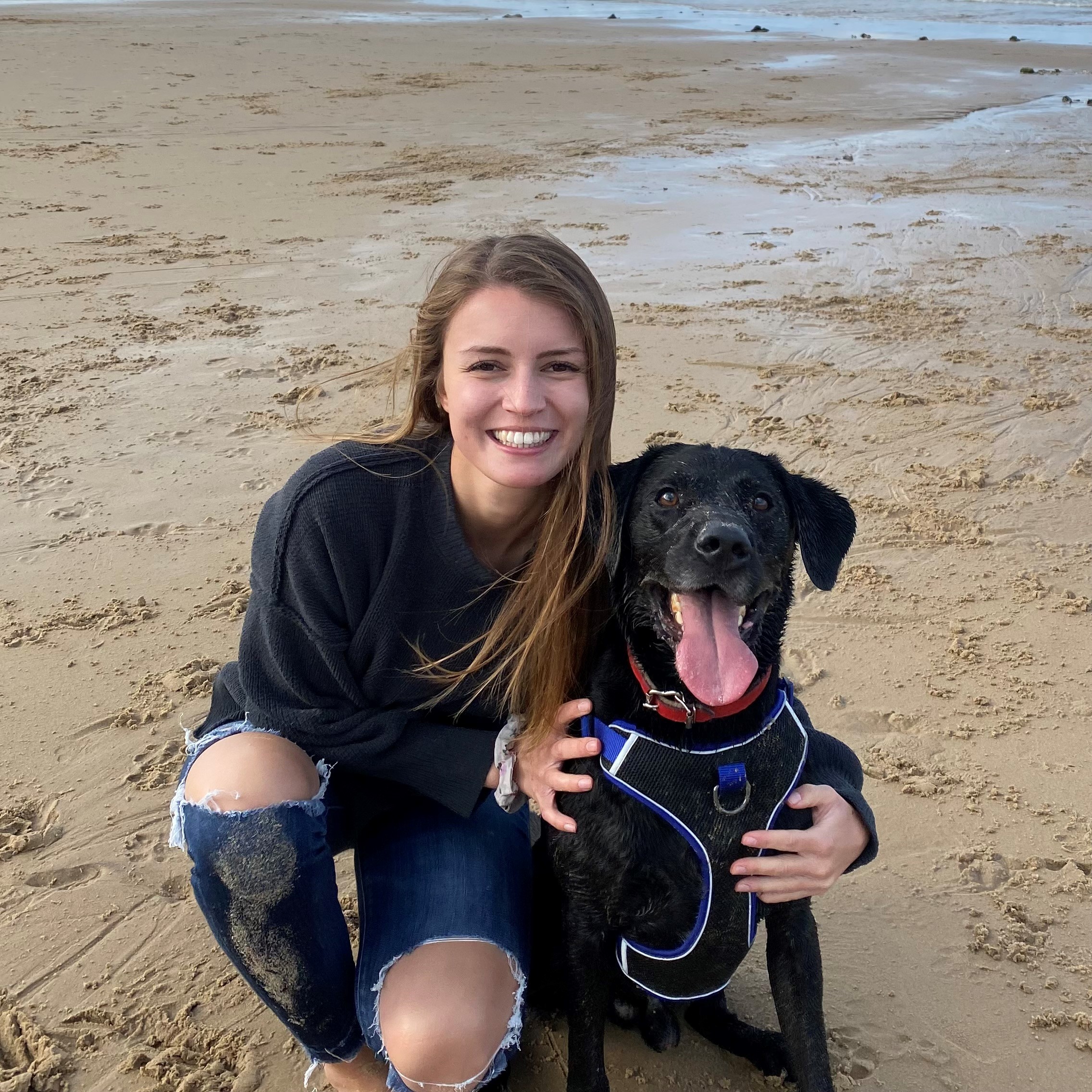
Rebecca focused on this topic as during her time in practice she had experienced mixed opinions from practitioners on the use of prazosin in preventing recurrent urethral obstruction in male cats.
Upon winning, Rebecca said, “I challenged myself to go through the publication process. It is rewarding knowing I have been able to contribute to the available evidence base and influence clinical decisions.”
Second place has been awarded to Rachel Garrett, Veterinary Medicine student from the University of Surrey, for her Knowledge Summary: The efficacy of recombinant feline interferon-omega in treating symptomatic cats infected with feline immunodeficiency virus

On her reason for entering the competition, Rachel said, “I wanted to challenge myself to produce a Knowledge Summary of high quality which could make a meaningful contribution to the veterinary industry's evidence base.
On finding out it was a winning Knowledge Summary, Rachel said, “I’m honoured to have placed in the competition, and the whole process has been invaluable in helping me develop my research and critical analysis skills. I’m honoured to have placed in the competition, and the whole process has been invaluable in helping me develop my research and critical analysis skills. It was a very rewarding experience, and I would definitely recommend entering the competition to any other students who are interested!”
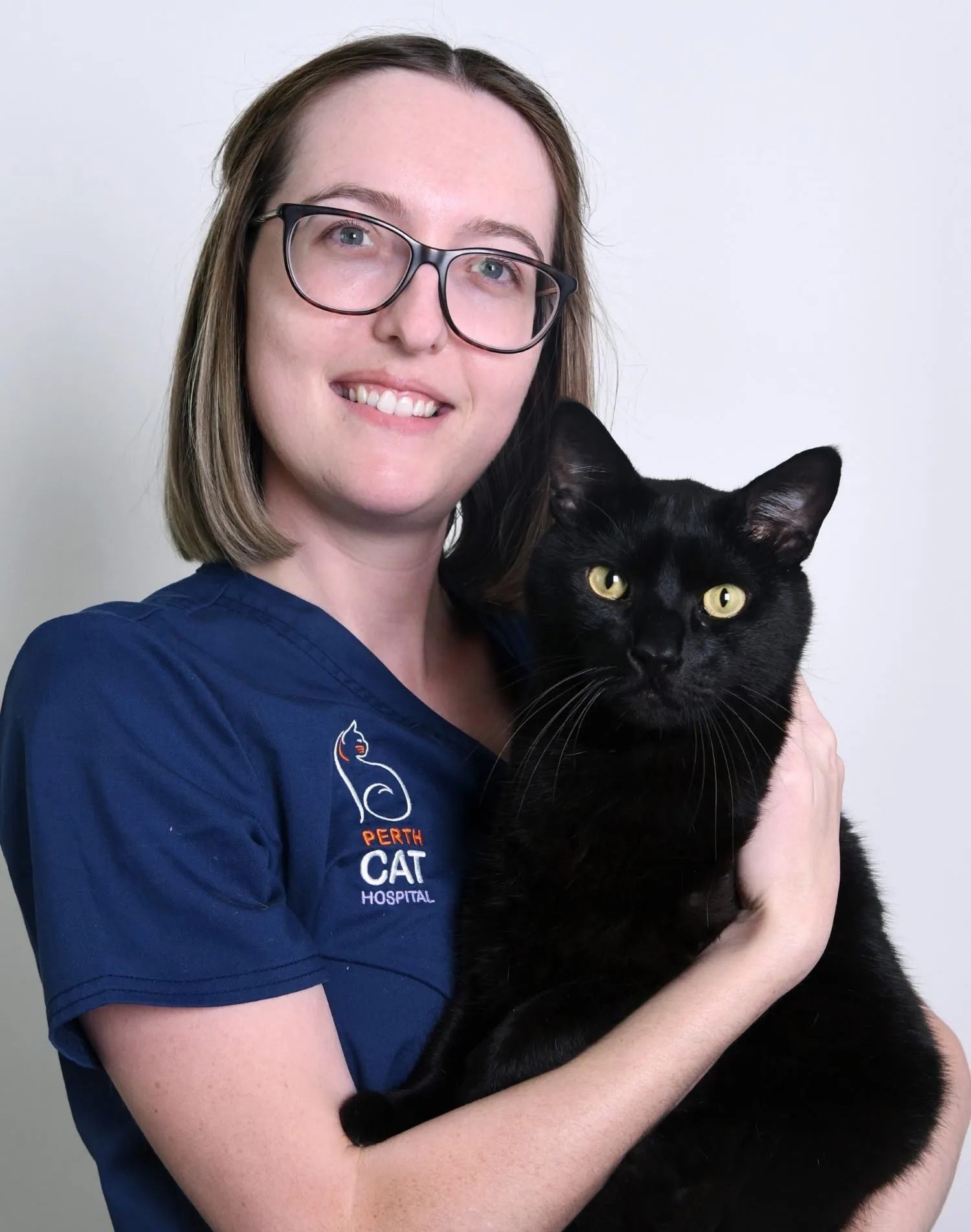
Third place is awarded to Ebony Crump, Veterinary Medicine student from the University of Murdoch, for her Knowledge Summary: Effectiveness of F3 feline facial pheromone analogue for acute stress reduction within clinical veterinary practice.
"Completing a literature review through RCVS Knowledge provided an opportunity to publish my work and experience the scientific research process. I felt very well supported by the program, and all resources needed to complete the project were provided. The peer reviewers gave wonderful feedback that really helped me reflect and improve upon my work. I am very grateful for the experience!"
2022 Veterinary Evidence Student Awards winners
First place went to Sarah Daphne Foo, Veterinary Medicine student from the University of Sydney, for her summary:
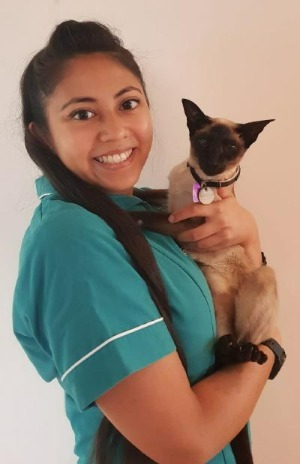
Sarah focused on this topic as rabbits are becoming more popular as pets, and as their numbers increase, so does the requirement for procedures that require a general anaesthetic.Sarah’s paper found evidence to support the use of both devices in maintaining stable anaesthesia in rabbits, concluding that the final choice of airway maintenance device should be based on the availability of equipment, the training of the practitioner and the procedure to be undertaken.
Upon winning, Sarah said, “'As a final year student hoping to publish my first paper, I was excited by the opportunity to participate in this competition, and I am honoured to receive this award. As someone very new to veterinary research and publication,I felt supported throughout the process, and feel much more confident in writing future Knowledge Summaries.
I chose my Knowledge Summary topic as I have a special interest in exotics and zoo medicine and hope to specialise in the future once I graduate from the DVM at the end of this year.It was a question I found myself asking whilst working in general practice throughout my degree, and I hope it is useful to others in the veterinary profession. I lookforward tocontributingfuture Knowledge Summaries toVeterinary Evidence.”
Second place has been awarded to veterinary medicine students Narakhanti Soenardi and Maxim Bembinov, from the Royal Veterinary College in London, for their Knowledge Summary titled ‘An assessment of client and clinician satisfaction in veterinary teleconsultation compared to in-person consultations’.

Maxim said, “As a student interested in research, I couldn't pass by such anexcitingopportunity as the Veterinary Evidence Student Awards. It is a fantastic way to learn more about the inner workings of the process of publishing scientific literature, while simultaneously contributing to the knowledge base of the veterinary community. It is definitely an invaluable experience and I recommend all students to consider applying next year.”

Narakhanti said, “I've always had an interest in contributing to EBVM and was curious to see what the process of getting something published was like, so I thought this was the perfect opportunity. Safe to say, I really enjoyed it!”
2021 Veterinary Evidence Student Awards winners
First place went to Alexandra Bartlett BSc (Hons) of The Royal Veterinary College in London, UK for her summary:

Alexandra critically appraised 20 controlled trials and
she concluded that there is moderate evidence to suggest that NSAID administration before, during or after castration can reduce the signs of postoperative pain in calves castrated without anaesthesia. Alexandra’s research has the potential to improve calf welfare and benefit farm vets and farmers throughout the UK. She said that she is proud to have her research published in Veterinary Evidence, to add to the knowledge base which will ensure that clients and patients receive the highest possible standard of care, and uphold the high welfare standards for farm animals in the UK.
“I first became interested in research during my intercalated year which was unfortunately affected by the pandemic, so my final project was cut short and the summer studentship I had hoped to carry out was unable to go ahead. I was worried that I'd missed out on opportunities to get involved with research during the rest of my time at vet school, so when I found out about the Veterinary Evidence Student Awards, I was really keen to get involved.
“I'm absolutely thrilled to have won the competition and have really enjoyed the opportunity to further my scientific writing and evidence-based veterinary medicine skills. I would definitely recommend the experience to anybody interested in entering!” she said.

Second place went toErina Leask from The University
of Sydney, School of Veterinary Science, Australia, whose Knowledge Summary looked at the efficacy of EMLA cream for reducing pain associated with venepuncture in felines.
Erina said: “I was composing a Knowledge Summary as part of the research component of my veterinary medicine degree. I challenged myself to pursue publication because I wanted to produce something that could contribute meaningfully to our industry's evidence base and assist clinicians in making decisions that improve animal welfare.
“Writing a Knowledge Summary was surprisingly straightforward! The guides and templates produced by RCVS Knowledge’s Veterinary Evidence really eliminated a lot of the guesswork. Although a little daunting overall, each step of the process felt like an achievable goal, which helped keep me on track and motivated.
“Most of all, this experience has allowed me tohonemy critical analysis skills, which I believe will be invaluable as I attempt to practise evidence-based medicine in my own career! Furthermore, publishing an article has been a huge achievement for me, and has been incredibly rewarding in its own right.”
 Summary asked,
Summary asked,
Third place went to Eleanor Best, from The University
of Bristol Veterinary School, UK whose Knowledge “In reducing surgical recovery time in rabbits, should doses exceeding 0.2 mg/kg of oral meloxicam be given and is twice daily administration more effective than a single daily dose?”
Eleanor said: “I am really passionate about research and contributing to the expanding knowledge base to improve the welfare of our patients. Entering this competition and writing a Knowledge Summary enabled me to hone my skills in literature searching and appraisal, and I hope to use these tools in general practice to make a difference in the clinic.”
2020Veterinary Evidence Student Awards winners
First place went to the University of Bristol Vet Nursing studentsCarla Husband, Abbie McMillan and Lauren Sweeney for their Knowledge Summary:
An assessment of the impact of educational interventions on hand hygiene compliance

The summary highlighted the paucity of evidence regarding the impact of educational interventions on hand hygiene compliance in small animal environments, a highly relevant topic during the COVID-19 pandemic, and called for more research to be carried out to support hand hygiene compliance in the veterinary professions.
Carla said “I feel so proud of myself and my co-authors for winning this competition. We worked very hard on making this Knowledge Summary the best it could be and can’t believe our hard work has paid off. I also feel very proud to represent the vet nursing profession and to come out of university with a published paper. To any vet nursing or vet students out there who are thinking of submitting to Veterinary Evidence, I say go for it! The more evidence we can contribute to our knowledge base, the better our profession can become.”
Second place went to Laura Pratley, University of Liverpool vet student, whose paper asked:
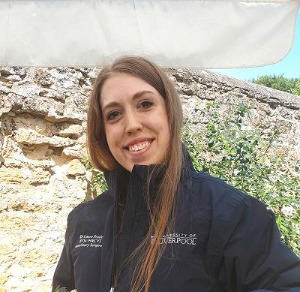
Laura said, “I became interested in research and EBVM in the latter years of vet school and was worried I'd missed opportunities to get involved with research/studentships. So when I saw theVeterinary EvidenceStudent Awards, I really wanted to get involved and have found the whole process really rewarding!”
Lesca Sofyan, a Veterinary Medicine student at the University of Sydney in Australia, took third place, for herpaper:
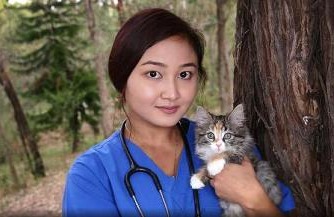
Lesca said: “I entered theVeterinary EvidenceStudent Awards when I wanted to share my results on my research. Patients and clients deserve to be provided the top standard of care, and Veterinary Evidenceallows me to do so quickly, as I can always analyse the available evidence behind my decision and choices.”
2019 Veterinary Evidence Student Awards winners
First place went to the University of Edinburgh’s Molly Vasanthakumar for her Knowledge Summary:

Molly found that there is not enough evidence that disposable synthetics reduce the risk of surgical site infections when compared to reusable woven drapes, based on her assessment of the available literature. Molly, who has a long-time fascination with the role vets can play in reducing waste, said:
“TheVeterinary Evidencestudent competition gave me an opportunity to identify a specific issue, find and appraise the evidence and then apply it to a practical setting.
“Winning the competition has given me a chance to further my skills in evidence-based veterinary medicine [EBVM] and also raise awareness of an incredibly important and topical issue.”
Second place went to the Universityof Cambridge's Honoria Brown for her Knowledge Summary:

Can changes in hoof wall temperature and digital pulse pressure be used to predict laminitis onset?
“Writing this Knowledge Summary was the perfect chance, not only to develop my ability to navigate and analyse databases, but also to present my findings for the benefit of other clinicians who face these issues,” said Honoria.
“I feel that these skills will be very useful to me later in my career, and I am grateful toVeterinary Evidencefor providing me with the opportunity.”
Third place went to the University of Edinburgh’s Jacqueline Oi Ping Tong for her Knowledge Summary:

Jacqueline critically appraised the evidence for whether a daily probiotic improved clinical outcomes in dogs with idiopathic diarrhoea.
“This experience makes me recognise the importance of evidence-based veterinary medicine to the veterinary community; it connects scientific research to everyday practice,” said Jacqueline.
“It was a great opportunity to engage in EBVM early in my veterinary career, and start learning how to critically appraise the current evidence.”

